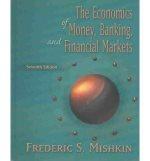Question
Question 4 . According to IATA, The COVID-19 crisis has disrupted global air travel resulting in a dramatic decrease in the consumption of jet fuel
Question 4. According to IATA, The COVID-19 crisis has disrupted global air travel resulting in a dramatic decrease in the consumption of jet fuel by airlines. Coupled with this decline was a deep and rapid decline in oil prices related to this decrease in demand and an increase in supply by some producers. As a result, airlines may have over-hedged their future jet fuel purchases with forward or futures contracts and find themselves with contracts that have significant negative values captured in equity. Studies have shown that airline profits are most sensitive to the price of jet fuel.
It is July 2019 (before COVID-19). Suppose you are a trader for an airline, and you watch the price of jet fuel rise to $76 per barrel and worried that prices could go higher in the summer of 2020 if the current trend continues. The airline is expected to buy 840,000 gallons (20,000 barrels) of jet fuel in summer 2020. On January 10, 2020, you decided to hedge 80% of your jet fuel price risk exposure using crude oil futures contracts (i.e., cross-hedge). On January 10, 2020, the spot price of jet fuel is $1.78 per gallon ($74.76 per barrel) and the June 2020 crude oil futures contract is trading at $62.00 per barrel. One crude oil futures contract is 1,000 barrels.
- What price change would lead to a margin call from the initial futures price of $65.00 per barrel?
Step by Step Solution
There are 3 Steps involved in it
Step: 1

Get Instant Access to Expert-Tailored Solutions
See step-by-step solutions with expert insights and AI powered tools for academic success
Step: 2

Step: 3

Ace Your Homework with AI
Get the answers you need in no time with our AI-driven, step-by-step assistance
Get Started


